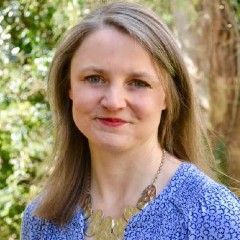You are not currently logged in. Please create an account or log in to view the full course.
Biblical Contexts
- About
- Transcript
- Cite
Chaucer: The Merchant's Tale
In this course, Professor Marion Turner (University of Oxford) explores Geoffrey Chaucer's Merchant's Tale. We begin by thinking about some of the Biblical allusions in the Tale, focusing in particular on the Garden the Eden and the Song of Songs. After that, we turn to some of the Classical allusions in the Tale and how these interact with the Biblical allusions outlined in the previous section. In the third module, we think about the Merchant's Tale in relation to the contemporary Italian and French sources that Chaucer would have been familiar with, before looking in more detail at the Tale's setting in Lombardy, before turning in the fourth module to think about how the Merchant's Tale engages with other Tales in the collection as a whole. Finally, in the fifth module, we think about the themes of perception and perspective in the Tale.
Biblical Contexts
In this module, we think about some of the Biblical allusions in the Merchant's Tale, focusing in particular on the Garden of Eden, the Song of Songs, as well the range of other references that Chaucer makes throughout the Tale – including the figures of Rebecca and Judith.
Cite this Lecture
APA style
Turner, M. (2018, August 15). Chaucer: The Merchant's Tale - Biblical Contexts [Video]. MASSOLIT. https://massolit.io/courses/chaucer-the-merchant-s-tale
MLA style
Turner, M. "Chaucer: The Merchant's Tale – Biblical Contexts." MASSOLIT, uploaded by MASSOLIT, 15 Aug 2018, https://massolit.io/courses/chaucer-the-merchant-s-tale

